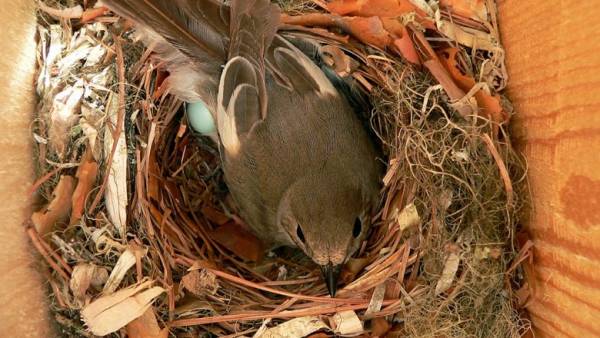Due to climate change in the Netherlands has intensified the conflict between the Tits and pitcher plants. They don’t have enough birdhouses
Scientist, University of Groningen, led monitor great Tits and a fly-lemmings from 2007 to 2016, and found that competition for nesting sites is exacerbated because of climate change. This leads to tragic consequences for the flycatchers, which are smaller and weaker than Tits.

Flycatcher is a small passerine bird that feeds its Chicks with caterpillars. In this they with great Tits is similar, and this similarity is a cause of competition between species. Both birds tend to start nesting when the caterpillars crawl out to eat the fresh leaves on the trees.
News Female budgies prefer intelligent males
Female budgies prefer intelligent males
Due to climate change, the flycatchers began to arrive in Europe earlier, and their timing of nesting dangerously close to Shinichi. All anything, but climate change does not negate the periodic cold winters and late springs, what do not know Flycatcher, which spends time in Africa. But well aware of the tit, which will not fly away, spend the whole winter in Europe and gnedovets in the cold start.
When at last there comes the heat, flies and flycatchers begin to gnedovets simultaneously with the Tits, and in the same birdhouses. This is another difference between the species in body mass. The bird in whole is larger flycatchers, besides more aggressive, and to live together with no intention of Flycatcher, with the result that the Tits remain with the birdhouses, and flycatchers are deprived of property and often of life. The scientist examined during the study 950 birdhouses, and according to him, which leads to a press release from the University, tit in the fight for living space usually split the skull of the pitcher plants and eat the brain.

If the winter was mild, it’s still on hand the choice — less frosts, and seeds of trees (scientist estimate harvest the fruits of beech, which also depends on the severity of the winter). The population of great Tits after the warm winter more than usual, which means that and free birdhouses will remain low, when flycatchers finally arrive from Africa.
The researcher hopes that further warming time of spring, will move even more, and the timing of nesting of blue Tits and flycatchers disperse again in time. Besides, he noticed that the victims of violent Tits are mainly males flycatchers that arrived after all, and such, according to the scientist, and no Tits usually remain without offspring. In any case, the number of pied Flycatcher is still intact.